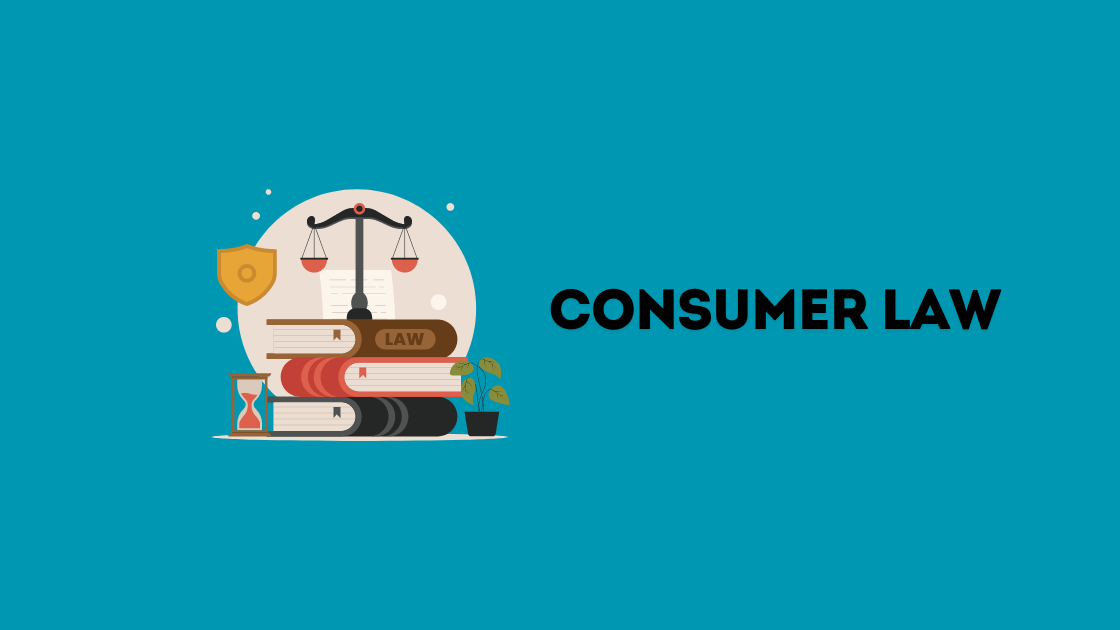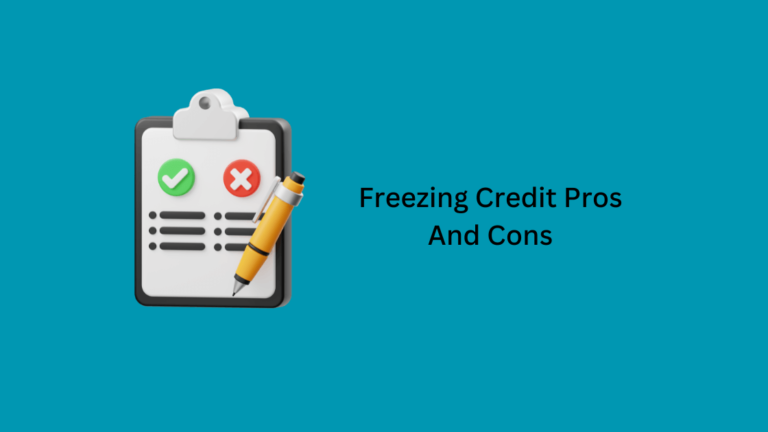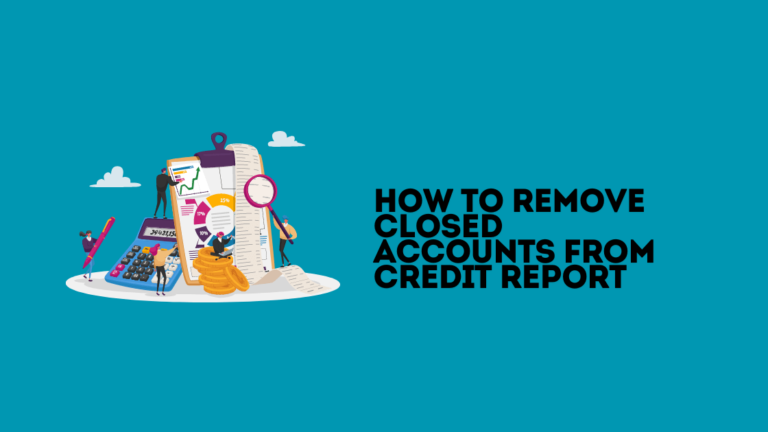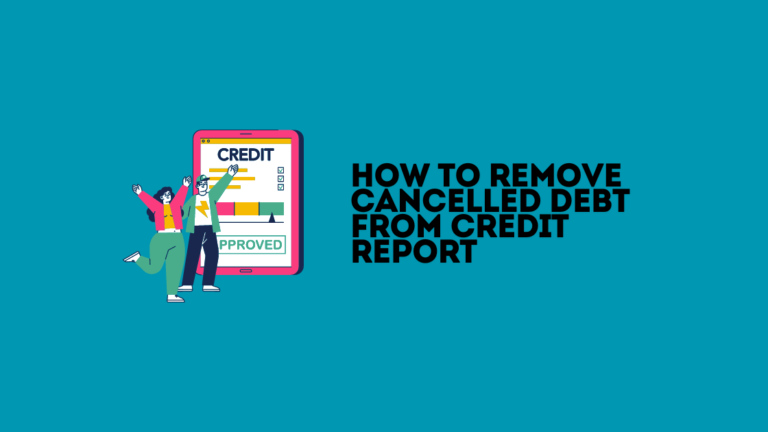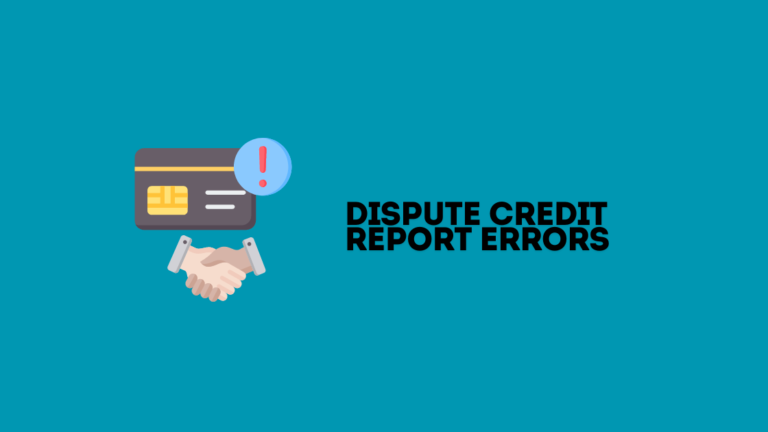Consumer Law Credit Repair: Your Guide to Financial Freedom
Consumer law credit repair involves correcting errors on credit reports under federal law. It ensures fair and accurate credit reporting.
Consumer law credit repair is crucial for maintaining a healthy financial profile. Errors in credit reports can lead to unjust denials of credit, higher interest rates, and other financial setbacks. The Fair Credit Reporting Act (FCRA) empowers consumers to dispute inaccuracies and mandates credit bureaus to correct them promptly.
Professional credit repair services can assist in navigating the complexities of this process, ensuring that your credit report reflects true and accurate information. Understanding your rights and taking proactive steps can significantly impact your financial well-being, leading to better credit opportunities and financial stability. Stay informed and vigilant to protect your credit health.
Introduction To Credit Repair
Credit repair involves improving your credit score. This helps you secure better financial opportunities. Fixing your credit can be a game-changer for your life. Let’s explore how credit impacts your financial health and the basics of consumer law and credit.
The Impact Of Credit On Financial Health
Your credit score affects many areas of your life. A good credit score means lower interest rates on loans. You can also get better deals on credit cards. Landlords check your credit before renting you a home. Employers might check your credit before hiring you.
Here’s a table showing different credit score ranges and their impacts:
| Credit Score Range | Impact on Financial Health |
|---|---|
| 300-579 | Very Poor – Difficult to get loans |
| 580-669 | Fair – Higher interest rates |
| 670-739 | Good – Reasonable interest rates |
| 740-799 | Very Good – Better financial opportunities |
| 800-850 | Excellent – Best rates and offers |
Basics Of Consumer Law And Credit
Understanding consumer law is key to credit repair. Consumer laws protect your rights. They ensure fair treatment by creditors. Here are some important consumer laws:
- Fair Credit Reporting Act (FCRA): Ensures accuracy of credit reports.
- Fair Debt Collection Practices Act (FDCPA): Protects against abusive debt collection.
- Truth in Lending Act (TILA): Requires clear disclosure of credit terms.
These laws help you dispute errors on your credit report. They can also stop unfair debt collection practices. Knowing these laws empowers you. You can take control of your credit repair journey.
Identifying Credit Report Errors
Identifying credit report errors is crucial. These mistakes can harm your credit score. A lower credit score affects loans, mortgages, and more. Knowing how to spot these errors is key. This section will guide you through common mistakes and how to obtain your credit report.
Common Types Of Credit Report Mistakes
Credit report errors come in many forms. Some mistakes are more common than others. Here are some typical errors:
- Incorrect Personal Information: Wrong names, addresses, or phone numbers.
- Account Errors: Accounts that are not yours or wrong balances.
- Duplicate Accounts: Same account listed multiple times.
- Outdated Information: Old debts that should be removed.
- Wrong Status: Accounts marked as late or delinquent incorrectly.
Steps To Obtain Your Credit Report
You need your credit report to check for errors. Here are the steps to get it:
- Visit AnnualCreditReport.com.
- Fill out your personal information.
- Choose the credit bureau: Experian, Equifax, or TransUnion.
- Answer security questions to verify your identity.
- Download your credit report for review.
You can get one free report from each bureau per year. Check all three to spot errors. Each bureau may have different information.
The Legal Framework Of Credit Reporting
The Legal Framework of Credit Reporting is crucial for consumer protection. Understanding the laws that govern credit reporting helps consumers manage their credit scores effectively. This section dives into the federal laws that protect consumers and their rights under the Fair Credit Reporting Act.
Federal Laws Protecting Consumers
Several federal laws protect consumers from unfair credit reporting practices. These laws ensure transparency and fairness in the credit reporting process.
- Fair Credit Reporting Act (FCRA): This law promotes accuracy in consumer reports.
- Fair Debt Collection Practices Act (FDCPA): This law prevents abusive practices by debt collectors.
- Truth in Lending Act (TILA): This law ensures clear and accurate credit terms.
These laws provide a framework that protects consumers from errors and unfair practices.
Rights Under The Fair Credit Reporting Act
The Fair Credit Reporting Act (FCRA) grants several rights to consumers. These rights empower consumers to manage their credit reports effectively.
| Right | Description |
|---|---|
| Access to Information | Consumers can access their credit reports for free once a year. |
| Dispute Errors | Consumers can dispute incorrect information on their credit reports. |
| Limit Access | Only authorized persons can access a consumer’s credit report. |
These rights ensure consumers can maintain accurate and fair credit reports. Knowing these rights is essential for effective credit management.

Credit: www.youtube.com
Disputing Credit Report Inaccuracies
Credit report inaccuracies can harm your financial health. Disputing errors is crucial for maintaining a good credit score. This guide will show you how to file a dispute and what happens next.
How To File A Dispute
Filing a dispute is a step-by-step process.
Follow these steps to ensure your dispute is successful.
- Obtain a copy of your credit report from each bureau.
- Identify errors like incorrect balances or false accounts.
- Gather documents that support your claim.
- Write a dispute letter to the credit bureau.
- Submit your dispute online or by mail.
| Step | Action |
|---|---|
| 1 | Get your credit report. |
| 2 | Check for errors. |
| 3 | Collect supporting documents. |
| 4 | Write a dispute letter. |
| 5 | Submit your dispute. |
What Happens After A Dispute Is Filed
After filing your dispute, the credit bureau investigates.
They contact the information provider.
This process usually takes 30 days.
The bureau reviews your documents.
They decide if the error is valid.
If valid, they correct your report.
- Your credit score may improve.
- You get a free updated report.
- They notify the other bureaus.
Dealing With Debt Collectors
Debt collectors can be intimidating. Knowing your rights and how to handle them helps. This section will guide you on dealing with debt collectors effectively.
Understanding Your Rights
Consumers have rights when dealing with debt collectors. The Fair Debt Collection Practices Act (FDCPA) protects you. This law prevents harassment and unfair practices.
| Right | Description |
|---|---|
| Right to Information | Debt collectors must provide details of the debt. |
| Right to Dispute | You can dispute the debt within 30 days. |
| Right to Privacy | Debt collectors cannot discuss your debt with others. |
| Right to Cease Communication | You can request them to stop contacting you. |
How To Handle Collection Calls
Receiving a call from a debt collector can be stressful. Follow these steps to manage the situation:
- Stay Calm: Take deep breaths and stay composed.
- Verify the Debt: Ask for details about the debt.
- Take Notes: Write down the caller’s name and the conversation.
- Request Proof: Ask for written proof of the debt.
- Know Your Limits: Do not admit to owing the debt.
Handling debt collectors with confidence is possible. Knowing your rights and following these steps ensures you are protected.
Credit Repair Companies: Pros And Cons
Credit repair companies promise to help fix your credit score. They offer various services to clean up your credit report. Like any service, there are pros and cons. Knowing these can help you make an informed decision.
Services Offered By Credit Repair Firms
Credit repair firms provide many services. Here are a few:
- Credit Report Analysis: They review your credit report for errors.
- Dispute Filing: They file disputes on your behalf to remove inaccuracies.
- Debt Validation: They request validation of debts to ensure they are legitimate.
- Credit Counseling: They offer advice on how to improve your credit habits.
These services can save you time and effort. But they often come at a cost.
Risks And Red Flags In Credit Repair Services
While credit repair companies can be helpful, there are risks involved. Be cautious of these red flags:
| Red Flag | Description |
|---|---|
| Upfront Fees | Charging fees before any work is done is a bad sign. |
| Guaranteed Results | No company can guarantee a specific credit score improvement. |
| Lack of Transparency | If they are not clear about their methods, be wary. |
| Pushy Sales Tactics | High-pressure sales tactics are often a red flag. |
Be vigilant and do your research. Choosing the right company can make a significant difference.
Diy Credit Repair Strategies
Repairing your credit can feel overwhelming. Yet, taking charge of it yourself can be empowering. DIY credit repair strategies help you understand your financial health better. With persistence and the right approach, you can improve your credit score.
Tips For Self-credit Repair
- Review your credit report: Get a free copy of your credit report from annualcreditreport.com.
- Dispute errors: Identify and correct any mistakes on your credit report.
- Pay bills on time: Consistent, on-time payments boost your credit score.
- Reduce credit card balances: Aim to use less than 30% of your available credit.
- Avoid new credit applications: Each application can temporarily lower your score.
Creating A Debt Repayment Plan
Tackling debt requires a solid repayment plan. Here’s a simple guide to creating one:
| Step | Action |
|---|---|
| 1 | List all debts with interest rates and balances. |
| 2 | Determine your monthly budget for repayments. |
| 3 | Prioritize debts with the highest interest rates. |
| 4 | Consider the snowball or avalanche method. |
| 5 | Track your progress and adjust if needed. |
The snowball method focuses on paying off the smallest debts first. The avalanche method targets debts with the highest interest rates. Choose the one that suits your financial situation best.

Credit: www.youtube.com
Maintaining And Building Good Credit
Maintaining and building good credit is essential for financial health. A strong credit score opens doors to better loan rates, housing opportunities, and job prospects. Let’s dive into some effective strategies and practices.
Best Practices For Credit Health
Adopt these best practices to ensure your credit remains in good shape:
- Pay bills on time: Timely payments boost your credit score.
- Reduce debt: Lowering your debt improves your credit utilization ratio.
- Avoid new credit applications: Frequent applications can lower your score.
- Maintain older accounts: Older accounts show a longer credit history.
Monitoring Your Credit Long-term
Long-term credit monitoring helps identify potential issues early. Regularly check your credit reports for errors or suspicious activity. Here are some tools and practices:
| Tool | Purpose |
|---|---|
| Credit Monitoring Services | Track changes in your credit report. |
| Annual Credit Report | Get a free yearly report from each bureau. |
| Credit Score Alerts | Receive notifications for score changes. |
These tools provide valuable insights. Stay proactive and protect your financial future.
Navigating Bankruptcy And Its Impacts
Bankruptcy can feel overwhelming, but it can also offer a fresh start. Understanding its impacts on credit is essential. This section delves into when bankruptcy is an option and how to rebuild credit afterward.
When Bankruptcy Is An Option
Bankruptcy should be a last resort. It’s for when other options fail. Here are some key indicators:
- Debts exceed assets
- Constantly missing payments
- Facing foreclosure
- Harassment from creditors
Two main types of bankruptcy exist for individuals:
| Chapter 7 | Chapter 13 |
|---|---|
| Liquidates assets to pay debts | Creates a repayment plan |
| Clears most unsecured debts | Allows you to keep property |
| Takes 3-6 months | Lasts 3-5 years |
Life After Bankruptcy: Rebuilding Credit
Post-bankruptcy, rebuilding credit is crucial. It requires patience and discipline. Follow these steps:
- Check your credit report for errors
- Start a budget to manage expenses
- Open a secured credit card
- Make timely payments
- Keep credit utilization low
Patience is key. Gradually, your credit score will improve. Seek financial counseling for guidance. Remember, bankruptcy is not the end. It’s a new beginning.
Consumer Advocacy And Support Resources
Consumer law credit repair can be a complex journey. Many people need advocacy and support resources to navigate through it. These resources help consumers understand their rights and take actionable steps. Below are some valuable resources for credit repair assistance.
Free And Low-cost Credit Counseling
Several organizations offer free and low-cost credit counseling services. These services help consumers manage and repair their credit. Certified credit counselors offer personalized advice and actionable plans.
- National Foundation for Credit Counseling (NFCC): Offers free and low-cost credit counseling.
- Credit.org: Provides free credit counseling and debt management plans.
- GreenPath Financial Wellness: Offers financial counseling and education programs.
| Organization | Services |
|---|---|
| NFCC | Free and Low-Cost Credit Counseling |
| Credit.org | Free Credit Counseling, Debt Management Plans |
| GreenPath | Financial Counseling, Education Programs |
Government And Non-profit Assistance Programs
Government and non-profit programs offer assistance for credit repair. These programs support consumers with low income or financial difficulties.
- Consumer Financial Protection Bureau (CFPB): Offers tools and resources for credit repair.
- Federal Trade Commission (FTC): Provides guidelines on how to repair credit and avoid scams.
- United Way: Connects individuals with local financial assistance programs.
These resources can provide the necessary guidance and support. They help consumers understand their rights and take effective steps toward credit repair.
Conclusion: Steps Towards Financial Freedom
Rebuilding credit is the path to financial freedom. It requires dedication and smart planning. By following consumer law credit repair, you can regain control. This journey involves setting realistic goals and continuous improvement. By monitoring your spending and making timely payments, you can gradually improve your credit score. It’s important to prioritize your debts and work towards paying them off. By doing so, you can secure your financial health and create a solid foundation for your future financial success.
Setting Realistic Credit Goals
Start with achievable goals. Understand your current credit score and set a target. Break down the process into smaller steps:
- Review your credit report
- Dispute inaccuracies
- Pay off small debts first
Setting clear goals helps you stay motivated. It also ensures progress is measurable. Create a timeline to track your goals. Adjust your plan as needed.
The Journey Of Continuous Financial Improvement
Improving credit is an ongoing process. Consistency and commitment are key. Here are steps to maintain good credit health:
- Pay bills on time
- Keep credit card balances low
- Avoid new credit applications
Monitor your credit report regularly. This helps you catch errors early. Educate yourself on financial management. The more you know, the better decisions you can make.
| Step | Action | Benefit |
|---|---|---|
| 1 | Review Credit Report | Identify errors and areas of improvement |
| 2 | Dispute Inaccuracies | Remove false information |
| 3 | Pay Bills On Time | Improve payment history |
| 4 | Keep Balances Low | Reduce credit utilization |
| 5 | Monitor Regularly | Stay aware of your credit status |
Taking these steps leads to financial freedom. Remember, patience and perseverance pay off. Your credit score will improve over time.
Frequently Asked Questions
How To Fix Your Credit With Consumer Law?
Dispute inaccuracies on your credit report using consumer law. Send dispute letters to credit bureaus. Request validation from creditors. Monitor your credit regularly. Seek professional help if needed.
What Are 5 Consumer Credit Protection Laws?
1. The Fair Credit Reporting Act ensures accurate credit reporting. 2. The Truth in Lending Act mandates clear loan terms. 3. The Fair Debt Collection Practices Act protects against abusive debt practices. 4. The Equal Credit Opportunity Act prohibits credit discrimination.
5. The Credit CARD Act of 2009 regulates credit card practices.
What Does The Consumer Credit Protection Act Cover?
The Consumer Credit Protection Act regulates credit transactions. It includes truth in lending, fair credit reporting, and debt collection practices. This law protects consumers from unfair credit practices, ensuring transparency and fairness in credit and lending.
What Is Illegal Credit Repair?
Illegal credit repair involves using fraudulent methods to improve a credit score. This includes creating fake identities, misrepresenting information, or disputing accurate credit data.
What Is Consumer Law Credit Repair?
Consumer law credit repair involves using legal methods to correct and improve your credit report.
Conclusion
Repairing credit through consumer law empowers you. Knowledge of your rights is crucial. Use these tools wisely. Seek professional guidance if needed. Stay informed and proactive. Your financial future can improve with dedicated effort. Don’t let poor credit hold you back.
Take charge of your credit today for a better tomorrow.

